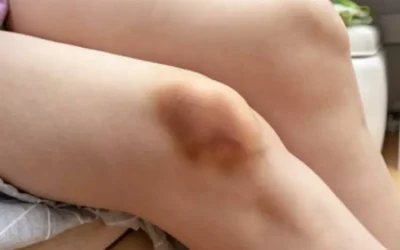Our lack of understanding of ET pathophysiology has prevented the rational development of effective agents. No drug initially developed for tremor exists, although drugs with multiple MOA improve tremor inconsistently. Potentiating GABA receptors in the CNS and inhibiting beta-adrenergic systems most consistently improve tremor. Inhibiting glutaminergic systems, carbonic anhydrase, SV2A receptors, and alpha-2 delta subunits less consistently improve tremor, whereas Na channel inhibition does not affect tremor. Until a better understanding exists, we will rely on clues from existing medicines to design treatments for ET. We propose that the improvement of varied hyperkinetic movement disorders with modest doses of EtOH or GHB doesnotderive from a simple pharmacologic effect on the GABA-A, GABA-B or GHB receptors.
- The final study with co-registered MRI localization confirmed this effect on the cerebellum and occipital cortex [60].
- Perampanel, a relatively new AED, markedly and specifically inhibits AMPA receptors but has not been tested in tremor.
- As essential tremor worsens, this condition can have more severe effects.
- Patient #2 sustained an asthmatic arrest leading to PHM fifteen years before this video was taken.
Personalized Approach to Alcohol Consumption
In an open label prospective trial, 37 patients received olanzapine, most taking mg daily in divided doses.140 Tremor significantly improved, and the effect was maintained over six months. Almost 40% of patients taking olanzapine https://ecosoberhouse.com/ reported that their tremor completely disappeared, and around 58% had a slight/barely noticeable tremor. The inclusion criteria of the review are the studies on the onset, epidemiology, and etiology of the essential tremor.
What is essential tremor?
- People with ET report feelings of embarrassment, humiliation, isolation, discouragement, frustration and more.
- Tremor disorders appear in green, myoclonic disorders in blue, and dystonic disorders in red.
- They can help assess the severity of the tremors, provide a proper diagnosis, and offer appropriate treatment options.
- In some studies it has been estimated that 50%, and as much as 80% of people according to the U.S.
- Most patients are able to tolerate the side effects, and studies have shown that 60% to 100% of patients respond positively.
Your healthcare provider will discuss your symptoms with you and may ask how often they occur and about what makes them better or worse. Essential tremor doesn’t cause other medical conditions and it doesn’t affect your health. It can be beneficial for you to get treatment for your essential tremor if it’s making you uncomfortable or self conscious. Generally, essential tremor begins during adulthood, and it can be more common with advancing age. According to a review published in The BMJ, essential tremor affects approximately 1% of the population and 4% to 5% of people over age 65. Some research suggests that people with essential tremor have a higher risk of developing Parkinson’s disease or sensory problems, like a loss of smell or hearing.
Literature Review: Alcohol-responsive Hyperkinetic Movement Disorders

The narrative review will discuss the dietary aspects of the essential tremor patients and nutritional components that might bring degenerative genetic changes responsible for essential tremor. The onset of essential tremor may be correlated with some components of the diet that might trigger tremors. The severity of essential tremor may be amplified due to the diet of a patient.
How to take care of myself/manage symptoms?
- A second study using increasing modest doses of alcohol [59] again showed the largest metabolic reductions in the cerebellum as well as thalamus and mesencephalon.
- Ethanol improves tremor at relatively low levels, usually within 20 minutes for 3–5 hours, sometimes followed by a rebound tremor augmentation.11,12 Like other agents, it reduces tremor amplitude but not frequency.
- They might also perform imaging tests to determine whether you have an underlying condition that’s causing your tremors, like a stroke or a tumor.
- The management of essential tremor might involve a change in lifestyle and diet of the patient to avert the advancement of the disorder.
The recovery time from the various treatments depends on many factors, especially the treatments themselves. The best source of information about your situation is your healthcare provider because they can consider all the factors and give you information that’s relevant to your specific case and circumstances. Essential tremor is a movement disorder that causes parts of your body to shake.
Alcohol in essential tremor and other movement disorders
The histamine-3 inverse agonist MK-0249 did not show benefit in a single dose study in ethanol-responsive ET patients.68 Histamine type 1 or 2 antagonists are not thought to affect action tremor. Our current understanding regarding germane neurotransmitter system pathology in ET is largely inferred from the clinical response of medicines that were serendipitously found to affect tremor. Drugs thought to improve tremor include beta-adrenergic antagonists, primidone, topiramate, ethanol, and benzodiazepines. Less consistent efficacy is reported with many other medications, usually anti-epileptic drugs (AEDs).

Lifestyle management
But if your essential tremor is making it difficult to work or perform daily activities, discuss treatment options with your health care provider. The Sperling Neurosurgery Group offers MRI-guided Focused Ultrasound for the treatment of drug resistant tremors (or for patients essential tremor alcohol who don’t want to take prescription medications). This noninvasive approach to treating hand tremors is an outpatient procedure that directs “beams” of ultrasound into the brain to deaden the small area that transmits dysfunctional movement signals to the hands.
How Essential Tremor Is Diagnosed and Treated – Next Avenue
How Essential Tremor Is Diagnosed and Treated.
Posted: Tue, 07 Jan 2020 08:00:00 GMT [source]
Other receptor systems that may be implicated in tremor
Of the 15 patients who completed the trial, tremor improved in eight after they had been taking the drug for two weeks. For essential tremor in your hands, botulinum toxin (Botox) injections have shown some promise in easing the trembling. The injections are targeted to the specific muscles that are involved in the abnormal movement, while avoiding uninvolved muscles.



